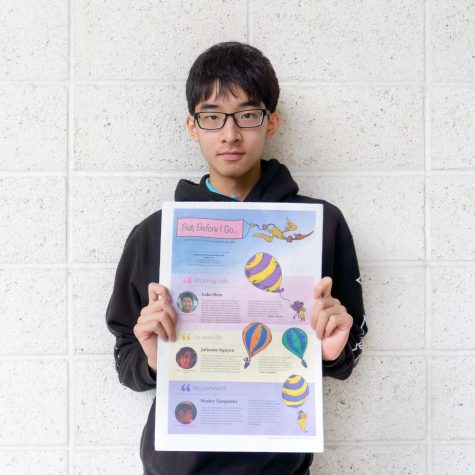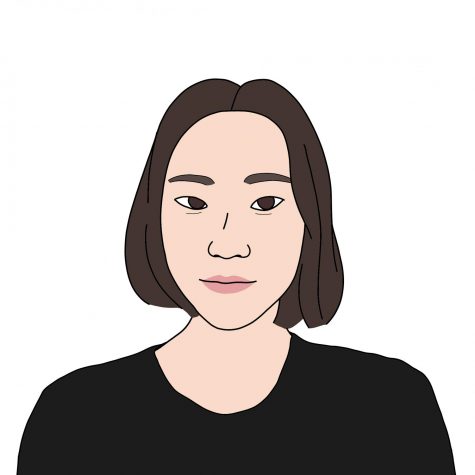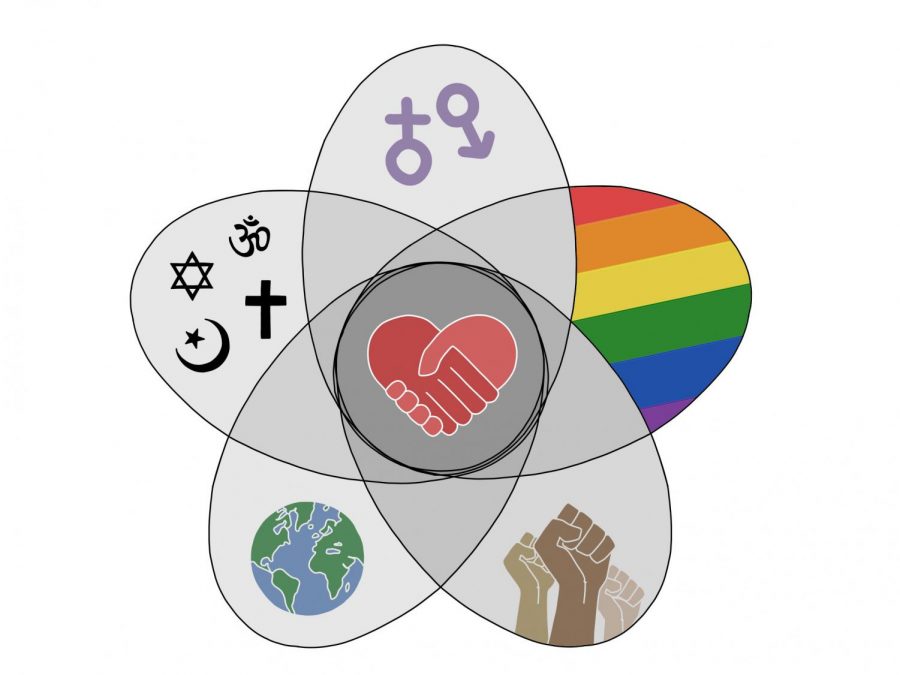Clubs Create Intersection of Social Initiatives
Though the many movements that comprise social justice represent the struggles of different groups, their ultimate goal of universal equality shapes them into an indivisible whole. This phenomenon, formally dubbed ‘intersectionality’, is a key factor to consider for clubs at Portola High striving for change.
As advocacy against social injustice in the United States continues to expand as a result of movements like Black Lives Matter, awareness of a need for change at Portola High has similarly grown.
Student clubs such as the Racial Justice Alliance, the OC Justice Project club and the Muslim Student Association provide opportunities to discuss and pursue solutions to a diverse spectrum of societal issues, including discrimination on the basis of race, ethnicity, religion, gender or sexual orientation.
Even though the causes these groups represent are unique, connections between their goals and values tie them into a broader movement for social justice, according to Muslim Student Association adviser Kari Tubbs.
“The struggles and the difficulties that the students talk about, and I see, are the exact same [struggles] that I see as a female, that … black students have, the LGBTQIA+ community has,” Tubbs said. “The struggle is all the same, but every group is taking a different direction out of it, using their own lens to see it.”
Inspired by the personal agency reflected in the ongoing fight for equality, the Racial Justice Alliance club seeks opportunities to mirror larger efforts.
With volunteer events planned to support the ability of individual members to enact change, the group aims to go beyond raising awareness of only racial discrimination in society today, according to co-president and junior Ashley Pham.
“We want to … educate people on what’s true and not true and the positions that they can find to help out, because I feel like being so young and having to sit back and watch everything happen and fall apart is hard for a lot of people,” Pham said. “The entire point of racial justice is equality for everyone, so that includes [other movements like] feminism. [Action] doesn’t just have to be about racial injustice. … In the future, we are planning to host community service, where we can volunteer at LGBTQ organizations and even hold peaceful protests.”
Portola High’s chapter of the OC Justice Project organization emphasizes students’ political power as a step toward forming a future generation with greater awareness of social injustices. According to member and junior Diya Jain, an integral part of the OC Justice Project is helping to build a means through which passionate individuals can advocate.
“We try to have political outreach; for example, we just had a virtual Town Hall with councilwoman Farrah Khan, and [we] also made a voter guide,” Jain said. “We’re not just focusing on one thing or forcing people to care about something, we’re trying to inspire [awareness] in young people so that they can choose what they want to talk about.”
And newfound inspiration is perpetually on the rise on campus. Opportunities for pursuing a branch of social justice that one resonates with have become more diverse, with fresh initiatives such as the Racial Justice Alliance adding on to the efforts of clubs that have been with Portola High since its inception, including the Muslim Student Association. It is clear that in Portola’s ever-adapting reply to a growing call for social justice, students both discover the convergence of multiple movements for equal treatment and take action to inform about and reform present barriers to the cause.
Your donation will support the student journalists of Portola High School. Your contribution will allow us to purchase equipment and cover our annual website hosting costs.

Justin Tang is the Portola Pilot’s Back Page Editor for the 2021-22 school year, his second and last on the team. Throughout the year, he’ll make sure...

Jaein Kim is the Director of Photography this year on the Portola Pilot. She is extremely passionate about visual media ranging from digital art to videography...




